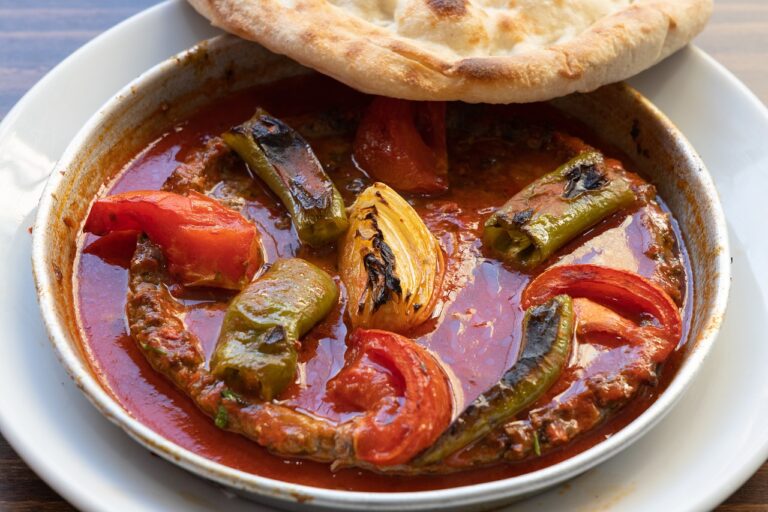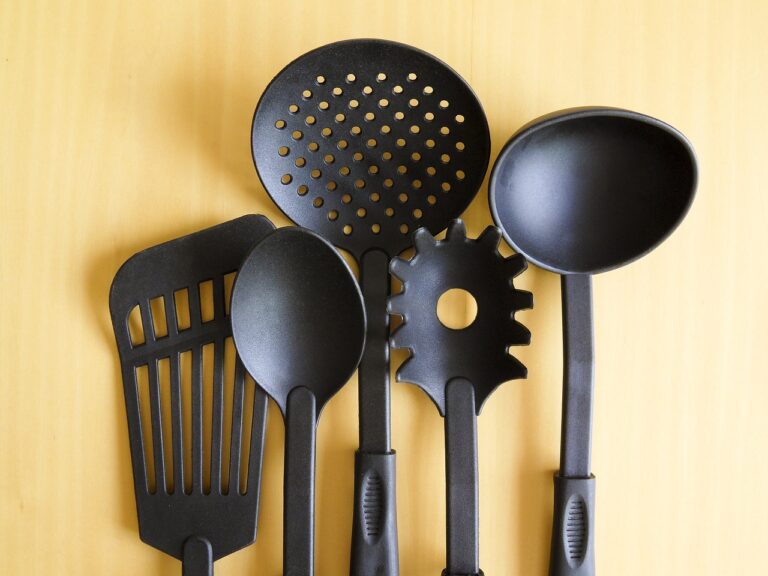Pasta and Mental Health: The Comforting Effects of Comfort Food: Betbhai9 registration, Radheexch/admin, My 99 exch
betbhai9 registration, radheexch/admin, my 99 exch: Pasta and Mental Health: The Comforting Effects of Comfort Food
We all have those days when we feel overwhelmed, stressed out, or just in need of some comfort. During these times, many of us turn to our favorite foods for solace. Comfort foods, as they are commonly known, have a way of soothing our souls and making us feel better, even if just for a little while.
One such popular comfort food is pasta. Whether it’s a bowl of spaghetti carbonara, a plate of creamy alfredo, or a simple yet satisfying bowl of macaroni and cheese, pasta has a way of providing a sense of comfort and warmth that is hard to replicate with any other food.
In this article, we will explore the relationship between pasta and mental health, and how indulging in this comforting dish can have a positive impact on our well-being.
The Science Behind Comfort Food
Comfort foods are typically high in carbohydrates, fats, and sugars, which can trigger the release of feel-good chemicals in the brain, such as serotonin and dopamine. These chemicals are known as neurotransmitters and play a crucial role in regulating our mood, emotions, and overall mental health.
When we consume comfort foods like pasta, our brains respond by releasing these neurotransmitters, which can lead to feelings of happiness, relaxation, and comfort. This is why many people turn to these foods during times of stress or sadness, as they provide a temporary escape from negative emotions and can help us feel better.
Pasta and Mental Health
In addition to the psychological benefits of comfort foods, pasta also offers several nutritional benefits that can positively impact our mental health. Pasta is a good source of complex carbohydrates, which are essential for proper brain function and can help regulate our mood and energy levels.
Furthermore, pasta is often combined with other ingredients, such as vegetables, proteins, and healthy fats, which can provide a well-rounded meal that is not only comforting but also nutritious. Including a variety of nutrients in our diet is important for maintaining optimal mental health and overall well-being.
Moreover, cooking and enjoying a bowl of pasta can be a therapeutic experience in itself. The process of preparing a meal can help us relax, unwind, and focus on something positive, which can be particularly beneficial during times of stress or anxiety. Sitting down to savor a delicious plate of pasta can also be a mindful experience, allowing us to be present in the moment and appreciate the simple pleasures in life.
Overall, pasta can be a valuable tool in our mental health toolkit, offering a comforting and nutritious option that can help us feel better both physically and emotionally. So the next time you’re feeling down or in need of some comfort, consider whipping up a delicious pasta dish to nourish your body and soul.
The Versatility of Pasta
One of the best things about pasta is its versatility. There are countless varieties of pasta shapes, sauces, and toppings to choose from, allowing you to customize your dish to suit your preferences and mood. Whether you’re in the mood for a light and refreshing pasta salad, a hearty and comforting bowl of lasagna, or a simple yet satisfying plate of spaghetti aglio e olio, the options are endless.
Pasta can also be adapted to suit a wide range of dietary preferences, including vegetarian, vegan, gluten-free, and dairy-free diets. With so many possibilities, pasta is a great option for those looking to enjoy a delicious and comforting meal that meets their specific needs and preferences.
Whether you’re cooking for yourself, your family, or a group of friends, pasta is sure to be a crowd-pleaser. Its comforting and satisfying nature makes it a popular choice for gatherings and celebrations, as well as a quick and easy option for weeknight dinners or lazy weekends at home.
Incorporating pasta into your meal rotation can add a sense of comfort and joy to your life, while also providing a tasty and nutritious option that everyone can enjoy. So get creative in the kitchen and try out some new pasta recipes to discover the endless possibilities this comforting dish has to offer.
The Social Aspect of Pasta
In addition to its comforting and delicious qualities, pasta also has a social aspect that can positively impact our mental health. Sharing a meal with loved ones, whether it’s a homemade pasta dinner with your family or a night out at your favorite Italian restaurant with friends, can foster connections, create memories, and bring joy to our lives.
Eating together has been shown to have numerous benefits for our mental health, including reducing feelings of loneliness, increasing feelings of belonging and connection, and improving overall well-being. Sharing a meal with others allows us to bond, communicate, and support each other, creating a sense of community and togetherness that can be incredibly uplifting and comforting.
So next time you’re craving a comforting bowl of pasta, consider inviting a friend or family member to join you. Sharing a meal with others can enhance the experience and make it even more enjoyable, while also providing an opportunity to strengthen your relationships and create lasting memories that you’ll cherish for years to come.
Incorporating pasta into your social gatherings, whether it’s a casual dinner with loved ones or a festive celebration with friends, can bring a sense of joy and connection to your life. So don’t hesitate to reach out and share a meal with those you care about, and enjoy the comforting and uplifting benefits that pasta can offer.
FAQs
1. Is pasta bad for my mental health?
While pasta can be a comforting and satisfying food choice, it’s essential to enjoy it in moderation as part of a well-balanced diet. Consuming pasta in excess, especially when paired with high-fat and high-calorie sauces, can contribute to weight gain and other health issues that may impact your mental health. Be mindful of your portion sizes and opt for whole-grain pasta and nutrient-rich toppings to maximize the nutritional benefits of this comforting dish.
2. Can pasta help with anxiety and stress?
While pasta alone may not be a cure for anxiety or stress, incorporating it into a balanced diet that includes a variety of nutritious foods can support your mental health and overall well-being. The carbohydrates in pasta can help regulate your mood and energy levels, while the act of cooking and enjoying a comforting meal can be a therapeutic experience in itself. Remember to practice self-care, seek professional help if needed, and explore various coping strategies to manage anxiety and stress effectively.
3. How can I make my pasta dishes healthier?
To make your pasta dishes healthier, consider incorporating whole-grain pasta, lean proteins, plenty of vegetables, and healthy fats into your recipes. Opt for homemade sauces made with fresh ingredients, herbs, and spices, instead of store-bought options that may be high in sodium and added sugars. Experiment with different pasta shapes, cooking methods, and flavor combinations to create delicious and nutritious meals that nourish your body and mind. Remember to enjoy your pasta in moderation and listen to your body’s hunger and fullness cues to maintain a healthy relationship with food.
4. Are there any vegan or gluten-free pasta options available?
Yes, there are plenty of vegan and gluten-free pasta options available on the market today. Look for pasta made from alternative ingredients such as brown rice, quinoa, chickpeas, or lentils, which are suitable for vegan and gluten-free diets. These options offer a delicious and nutritious alternative to traditional pasta and can be enjoyed by individuals with dietary restrictions or preferences. Experiment with different pasta varieties and recipes to discover new favorites that cater to your specific needs and preferences.
5. How can I incorporate more pasta into my diet?
To incorporate more pasta into your diet, consider meal planning and prepping ahead of time to have pasta dishes ready to enjoy throughout the week. Experiment with different pasta shapes, sauces, and toppings to keep things interesting and prevent mealtime boredom. Batch cooking pasta dishes in large quantities and freezing individual portions can save you time and effort on busy days when you need a quick and convenient meal option. Get creative in the kitchen and try out new recipes to discover fun and delicious ways to incorporate pasta into your diet.
6. Can pasta be a part of a weight loss plan?
While pasta is often associated with weight gain, it can still be a part of a weight loss plan when consumed in moderation as part of a balanced diet and healthy lifestyle. Opt for whole-grain pasta, lean proteins, plenty of vegetables, and portion control to create satisfying and nutritious meals that support your weight loss goals. Be mindful of your overall calorie intake and physical activity levels to achieve a healthy and sustainable weight loss while still enjoying the comforting and delicious qualities of pasta in moderation. Remember to listen to your body’s hunger and fullness cues and prioritize your overall well-being above all else.







